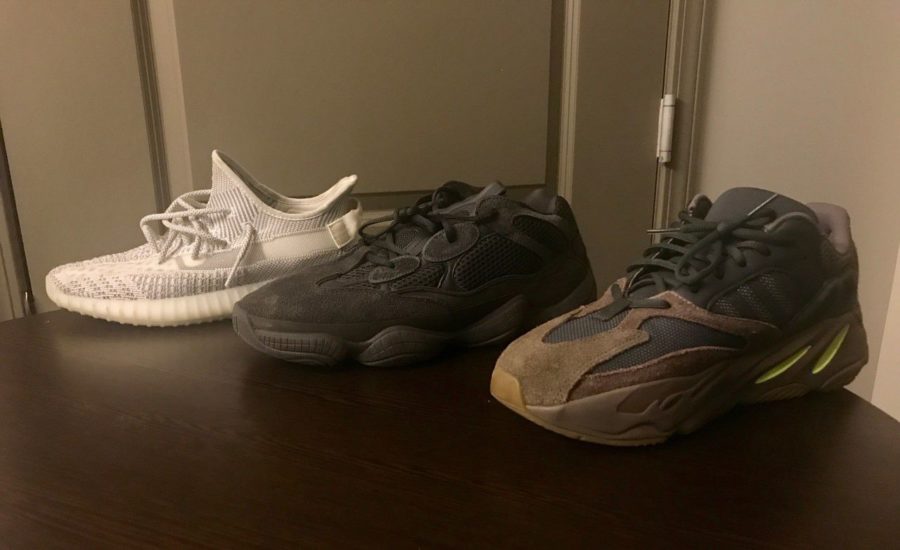The billion-dollar shoe secret
March 20, 2019
The usual things people expect to see walking into a college dorm room are probably textbooks, notes and other supplies. Rarely do you walk into a dorm that could double as a shoe box. But things are now shifting.
According to Forbes Magazine, the global athletic footwear market size is expected to reach $95.14 billion by 2025, while the underground market for sneaker reselling is currently valued at a billion dollars.
The market for sneaker reselling has skyrocketed over the past decade with the increased amount of limited releases combined with their association to athletes, music artists or any form of entertainment. Today’s youth has been able to capitalize on this. They have been able to wear the shoes they love or flip them for what should be considered a healthy profit.
With the influence these people and designers have on the young culture in general and here on campus, seeing rare shoes is pretty common.
Freshman reseller and engineering major Andre Reed has taken a step back in terms of selling and is now appreciating the pieces and getting wear out of them before deciding to part ways.
“I keep a shoe based on my past, really,” Reed said. “I know if a lot of people wanted them but couldn’t get them they will go for a lot so I might end up selling, but I do keep a few pairs now with me.”
Nike has a lottery system that sneakerheads have a love/hate relationship with. The app SNKRS, created by Nike, allows customers to make an account and get notifications for all the latest releases, but on the morning of a limited release it is not about who gets there first. Everyone has equal opportunity and is entered into a raffle which leads to people who missed out on one of their grails to greatly overpay market value.
Freshman reseller and business major Brandon Mitchell got into the market last summer.
“I prefer to buy rare shoes from websites like StockX or GOAT because they verify everything upfront and you don’t have to worry about if they are legit or not,” Mitchell said. “I have experience selling through GOAT.”
Earlier in the 2010s, consignment shops like Flight Club were the main source for resellers to go to. It worked as a middle man for buyer and seller to ensure everything was legit. As time went on, apps like GOAT, StockX and Grailed have taken over as the main markets for resale.
“I got into selling because my friend’s dad was a manager at Champs Sports,” Reed said. “At a certain point I had stopped caring about shoes so I wanted to test the market to see what I could make through Grailed.”
While UK students have been able to find a way to make money on the side from sales, reselling has turned into an empire for some outside of campus. Mitchell said he has earned “a cool 1,500” dollars from reselling since last summer.
On the other side of things, Benjamin Kickz, a 19-year-old reseller in Miami, currently values his self-made business at $1 million, according to Forbes.
In today’s age, what used to be an innocent hobby has turned into one of the most lucrative underground businesses worldwide and is showing no signs of slowing down.






























































































































































